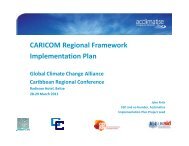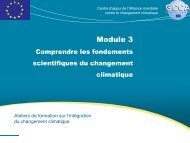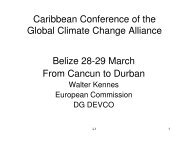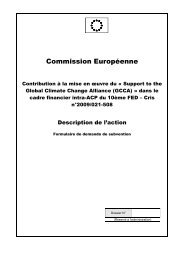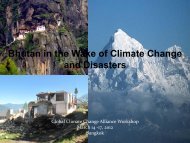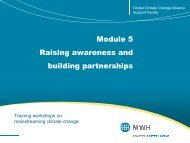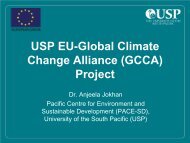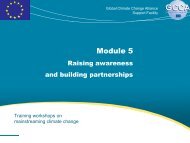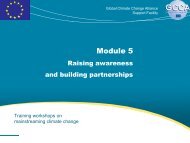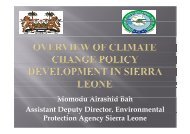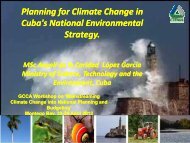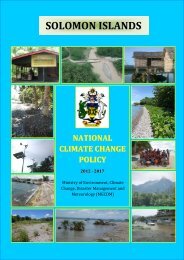Rwanda Green Growth Strategy 18nov11 - Global Climate Change ...
Rwanda Green Growth Strategy 18nov11 - Global Climate Change ...
Rwanda Green Growth Strategy 18nov11 - Global Climate Change ...
You also want an ePaper? Increase the reach of your titles
YUMPU automatically turns print PDFs into web optimized ePapers that Google loves.
Chapter 4Programme 7: <strong>Green</strong> Industry and Private Sector Development<strong>Rwanda</strong> is actively improving the investment climate by improving start-up and operating conditionsfor business and industry, addressing water and energy requirements, and establishing a Special EconomicZone in Kigali (SEZ) and provincial industrial parks in urban areas to attract foreign investment. The greeningof industry is supported by the <strong>Rwanda</strong> Resource Efficient and Cleaner Production Centre (RRECPC), aproposed <strong>Climate</strong> Innovation Centre (CIC) and the National Industrial Policy. Support of the private sector isneeded to reduce industry emissions and build a local renewable energy sector. In order to transformindustry, <strong>Rwanda</strong> will• Scale up resource efficiency to reduce energy and water demand, thus reducing emissions andpromoting resilience;• Employ efficient and zero waste technologies, practices and design in Special Economic Zonesand provincial industrial parks;• Establish <strong>Climate</strong> Innovation Centres to support investment in industries producing greentechnologies and those adopting green technology; and• Build carbon trading capacity within the private sector to harness innovative funding opportunitiesprovided by CDM and voluntary carbon markets.Programme 8: <strong>Climate</strong> Compatible MiningThe mining industry in <strong>Rwanda</strong> is undergoing transformation as recent privatisation of concessionsand proactive government policy drives its development. The <strong>Rwanda</strong> Mining Policy has five strategic pillarsthat support the growth of the mining industry. If this policy is considered ‘business as usual’ for the nextdecade, then mining is likely to contribute significantly to energy use, GHG emissions and water use in<strong>Rwanda</strong>. A sixth strategic pillar – low carbon, climate resilient development – will be added to the MiningPolicy with the aim of reducing GHG emissions, improving energy security and water security and reducingvulnerability to floods and landslides. Flood and landslide hazard plans and disaster risk management isneeded at mining operations and linked to community disaster management. The government will supportthe mining industry to• Implement energy efficiency at operations, through measuring and reporting, setting targets andusing efficient technologies;• Utilise electricity from renewable energy sources, either from the national grid or on-sitegeneration;• Employ good water management practices on operations, including water efficiency and floodmanagement; and• Expand the capacity building programme to account for new skills needed in energy and watermanagement.24Government of <strong>Rwanda</strong>



